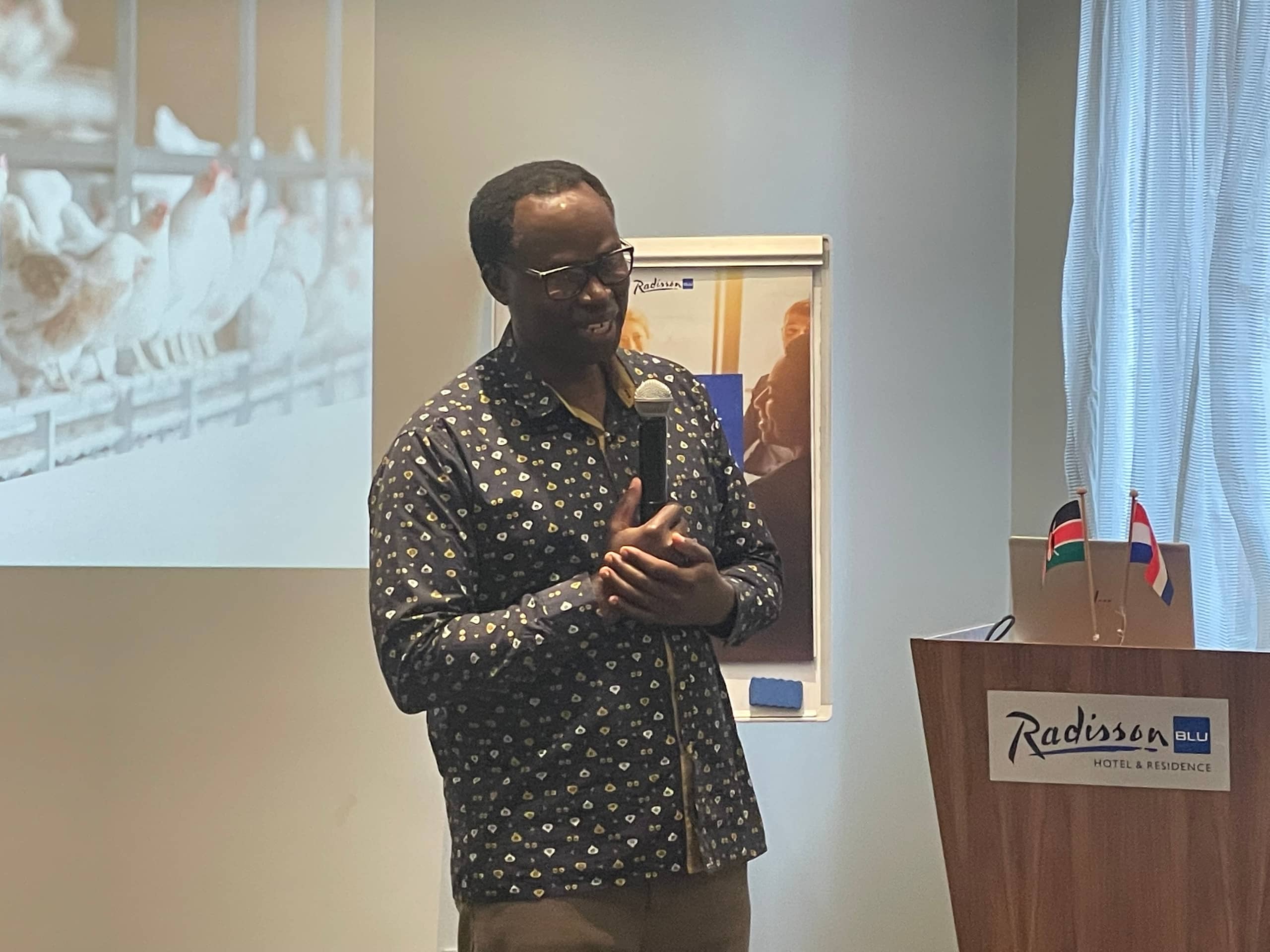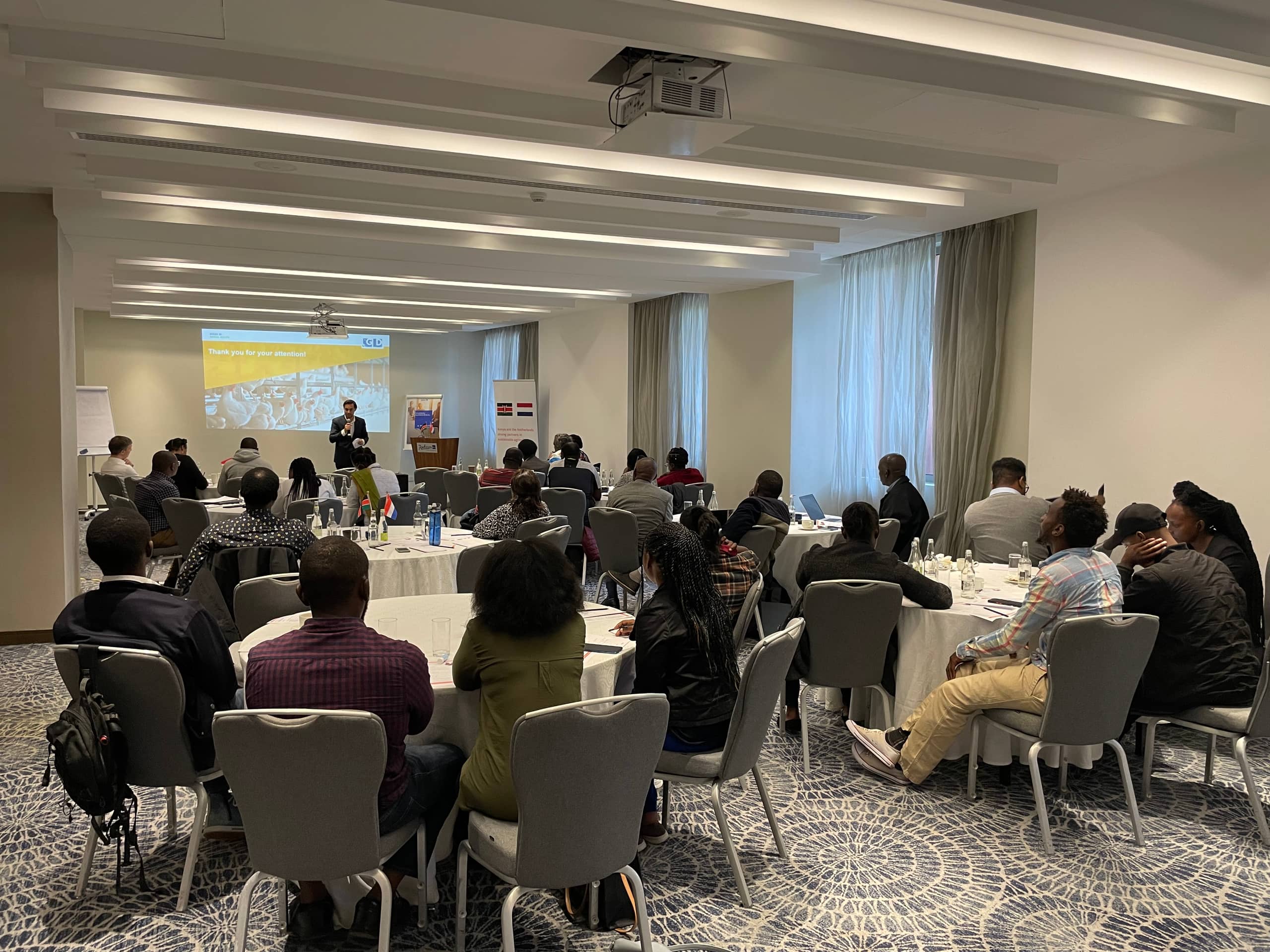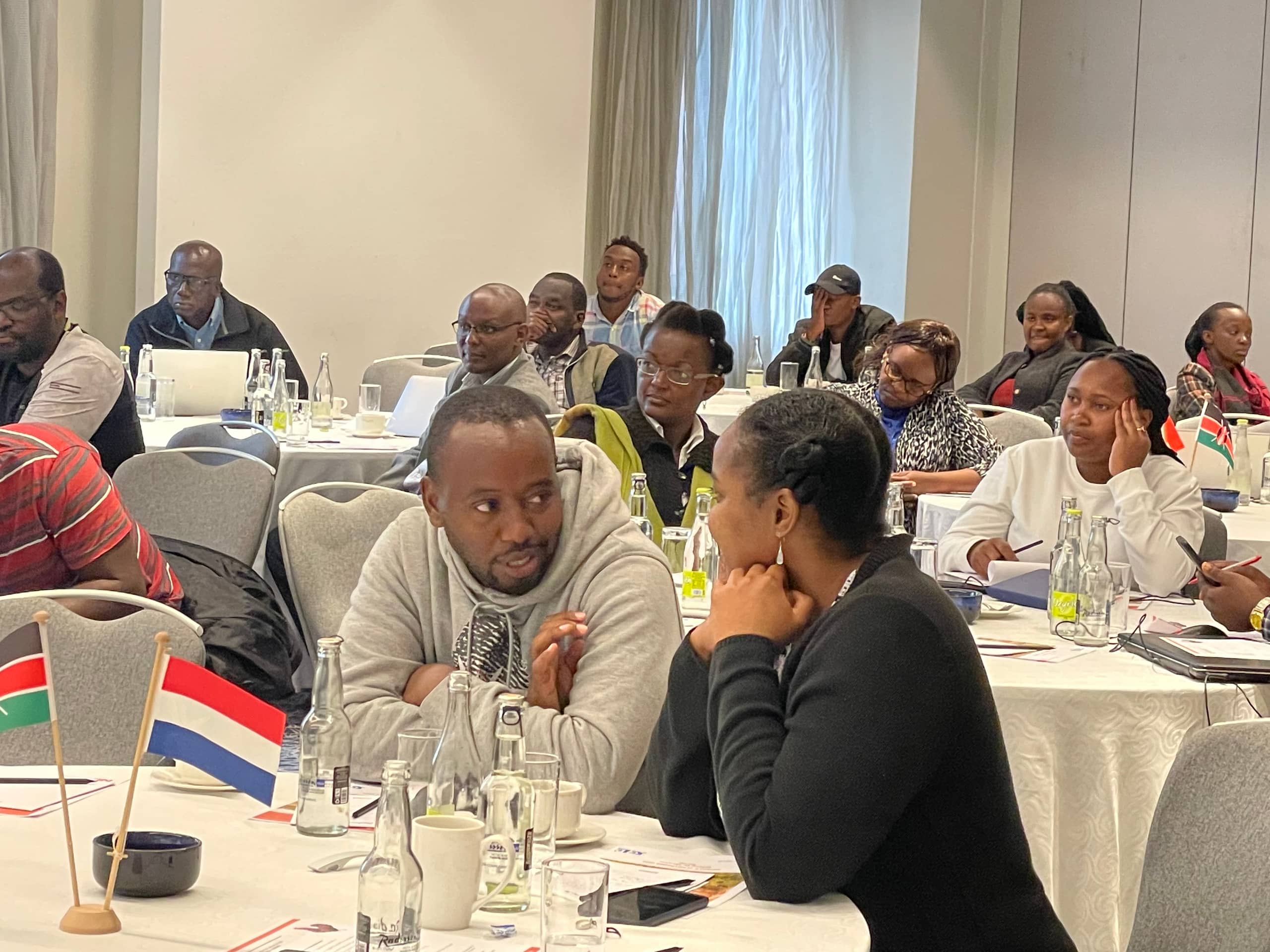Poultry farming in Kenya is playing an important role in the total economy and fulfilling the nutrition demand in Kenya. it provides food in form of meat and eggs, income from sale of meat, eggs and manure and acts as capital for investment.
Domestic demand is about 300,000 chicken per month. This has been driven by growing middle class and urbanization. Currently Kenyan producers can cover only 60% in poultry meat and 50% in eggs. To meet the demand the rest being imported from Tanzania and Uganda.
That coupled with the fact that there are a lot of smallholders keeping poultry was one of the reasons that animal health is a topic under the Kenya Netherlands Agriculture working group. Under animal health we have the veterinary working group where we cooperate on poultry genetics, poultry health and animal feed among others.
We work together in this partnership to share knowledge, expertise and technologies throughout the sustainable agricultural value chains. The poultry sector is an important sector for both Kenya and the Netherlands.
As a result of this a poultry health seminar themed Poultry health for sustainable production was organized in cooperation between both Kenya and the Netherlands. The seminar was facilitated by expert from the Royal GD, an organization working on animal health and production. The participants included poultry farmers, the sector association namely Kenya Poultry Farmers Association (KEPOFA), non-governmental organizations amongst others.
Poultry Health Seminar
The seminar began with remarks from both government and private sector.
“With the right information and knowledge, it is possible to start and grow a farm. It also takes will and zeal to succeed sentiments." - Mary Were, board member of KEPOFA
“Farmer groups need to be strengthened in poultry health which in turn enables them to diversify with other poultry for instance duck , geese or turkey to help food security. The market within Kenya is big enough to exploit before embarking on exporting” - Dr. Ochodo from Directorate of Veterinary Services.
The first part of the training focused on prevention of diseases. The biggest preventive measure is to observe your poultry on a regular basis to detect any changes early. Key things to focus on are aspects for instance
- Look, listen, smell and have a feel for your poultry
- What is happening and why is it happening?
- What should I do?
The expert from Royal GD then went ahead on the topics of monitoring the poultry health , biosecurity amongst other topics.
“In my 7 years of poultry farming this is the first time I am learning some of the topics. It was also good to interact with other farmers and learn from their experiences” one of the participants remarked.
Beeld: © Roodbont
To further continue learning the Embassy provided some copies of Poultry Signals a practical guide for poultry production to the participants of the seminar. Learning never stops and detecting signals in your poultry stock is key in maintaining the health of the animal thereby optimizing production.
The seminar was a success thanks to the interaction and cooperation between the private sector and government institutions.
If you wish the presentation on poultry health (preventive measures & gut health) which was done by GD Health during the seminar, kindly send an email to nai-lnv@minbuza.nl .
For more information about the trainings offered or in case of questions for the Agricultural Counsellor feel free to contact us via nai-lnv@minbuza.nl. You can always contact us when starting new businesses and partnerships which can contribute to improving agricultural productivity in Kenya and Tanzania. For the latest updates follow us on twitter @NLAgriKenya or register for our newsletter by sending an email.


